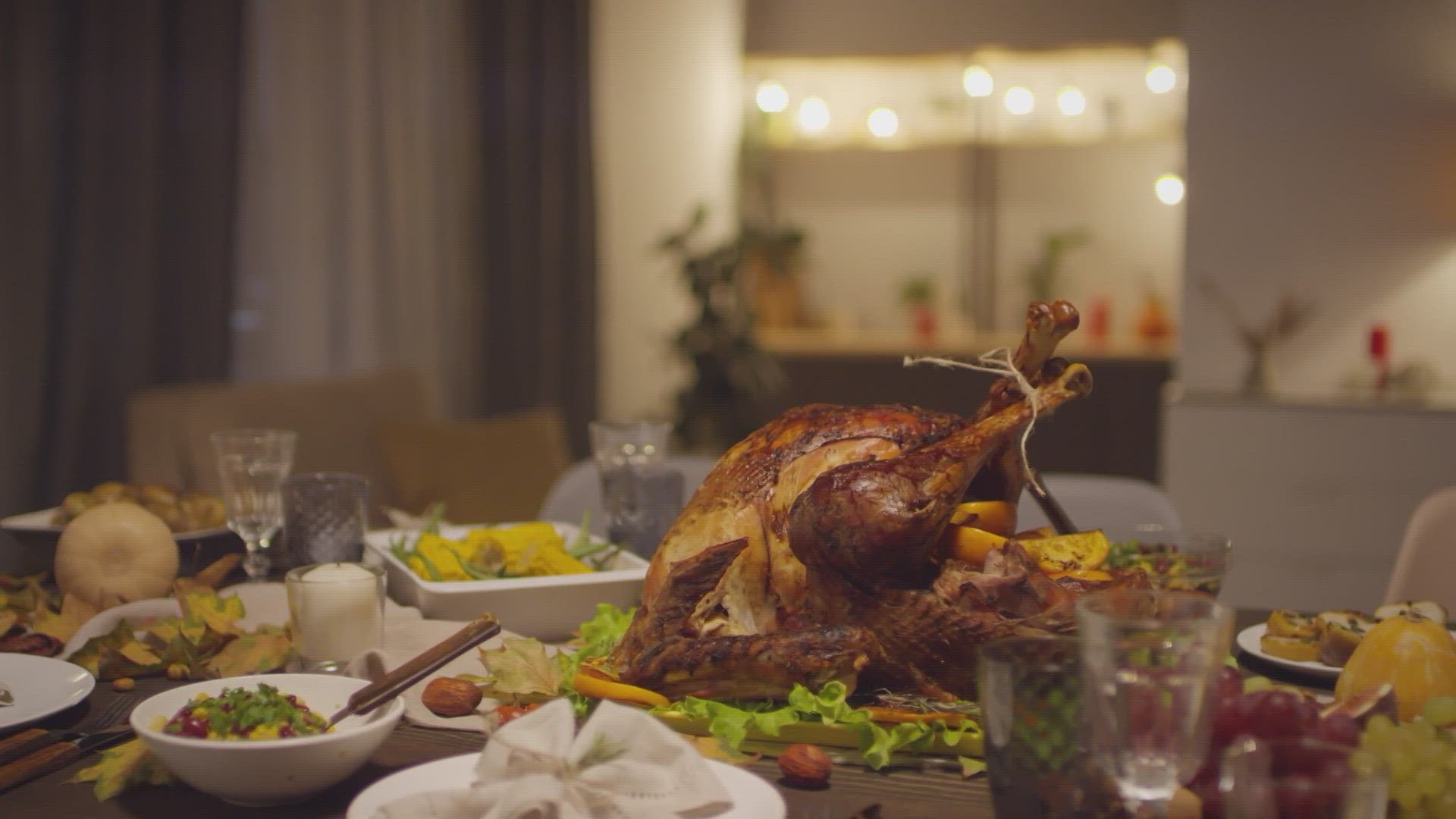WASHINGTON — It’s Thanksgiving time, and you or others at the dinner table may be tempted to slip the dog or cat a treat. Every year, memes and shared social media posts warn that a tasty sample off a plate can be dangerous for a pet.
The VERIFY team tracked down which dishes can and can't be shared with four-legged family members.
THE QUESTION
Are the lists that circulate on social media, about turkey and other traditional Thanksgiving dishes being dangerous to pets, really true?
THE ANSWER
Yes, for the most part, according to a variety of veterinary sources and canine experts.
Here’s what various expert people and groups have to say about feeding your pets various staples of Thanksgiving feasts.
TURKEY
Although the Texas A&M University Veterinary Medicine & Biomedical Sciences site says a little bit of the white meat from your Thanksgiving bird is OK for pets, the American Veterinary Medical Association warns against giving your pet any part of the turkey at all.
“Eating turkey or turkey skin – sometimes even a small amount – can cause a life-threatening condition in pets known as pancreatitis,” the AMVA warns on its Thanksgiving Pet Safety page.
Both the Texas A&M vet school and the AVMA say don’t give your pet the dark meat, the skin, bones or fatty trimmings.
FATTY FOODS
Fatty food in general poses a danger, the Pet Poison Helpline says. Butter, bacon, meat drippings, gravies and meat scraps can also lead to pancreatitis. Symptoms, which include vomiting, diarrhea, loss of appetite and abdominal pain, may be immediate or take up to four days to appear.
DRESSING AND INGREDIENTS
Whether you call it dressing or stuffing, either way, the dish is bad for your pet, especially dogs.
“Onions and garlic, in particular, can be very toxic to dogs,” Dr. Jerry Klein, a chief veterinary officer of the American Kennel Club, writes on the AKC site.
Both are also deadly for cats, PetMD says.
Although some social media posts say you shouldn’t feed your pets sage, often a dressing ingredient, it is not toxic, the ASPCA says. Mushrooms, also often tossed into the stuffing, are safe if they are from a large-chain grocery store, Dr. Justine A. Lee writes on Pet Health Network.
THE SIDES
Cooked sweet potatoes, not raw, and green beans are safe for pets, but not if they’re from a casserole. With corn on the cob, it’s the cob that’s risky for dogs and cats. The cob is a choking hazard and can obstruct the intestines.
BREAD DOUGH
Bread dough is trouble for pets, especially dogs “because of their indiscriminate eating habits, the Merck Veterinary Manual says. That’s because yeast replicates in “the warm, moist environment” of a pet’s stomach, causing it to painfully swell.
DESSERTS
Chocolate is poisonous to pets, but “dogs make up 95% of all our chocolate calls, as cats are usually too discriminating to eat chocolate,” the Pet Poison Helpline says.
As for pumpkin pie or other holiday sweets, avoid anything with xylitol, a natural, sugar-free sweetener, Pet Poison Helpline says. If a sugarless dessert is on your table, be aware that it can plunge your pet’s blood sugar dangerously low and cause liver failure.
SPICES
One specific spice that gets a lot of scrutinies is nutmeg, which contains the toxin myristicin. But it’s unlikely your pet would consume enough to be harmful, Pet Poison Helpline says. Cinnamon also won’t hurt your pet in small amounts.
NUTS
A small amount of unsalted, unseasoned peanuts or cashews won’t hurt a dog, the AKC says. But macadamia nuts are dangerous for dogs and cats, causing weakness, depression, vomiting, ataxia, muscle tremors, hyperthermia, and tachycardia, the Merck Veterinary Manual says.
As few as six macadamia nuts can be toxic to dogs.
GRAPES AND RAISINS
“Ingesting grapes or raisins can lead to renal failure in dogs, and “anecdotal reports exist of renal failure in cats and ferrets,” the Merck Veterinary Manual says.
ALCOHOL
Alcohol “tends to be distasteful to most animals,” says Dr. Steven Friedenbert on PetMD, so it’s a rare problem. If a pet does lap up an alcoholic drink, the size of the pet matters.
“Just as with humans, the safety issue is not with the type of alcohol your dog consumes but rather, how much was consumed,” says Dr. Klein of the AKC.
Something you’d like VERIFIED? Click here to submit your story.

